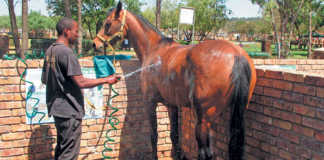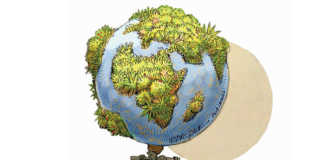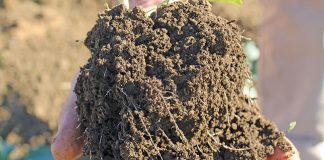
The agriculture sector in South Africa has once again outshone the sagging national economy. Despite the pressure from automation on jobs, employment increased 10% year-on-year, and even the minister of agriculture applauded this remarkable growth!
And let’s not forget our farmers’ performance during the COVID-19 years. Production and export volumes soared, ensuring a continuous flow of food supplies and sustained employment.
And yet again, during the horrendous unrest and looting on 9 July 2021, with torching of trucks, public violence and malicious damage to property the order of the day, farmers were the first to get out of the blocks.
Within days, trucks were back on the roads; the largest export citrus crop ever was successfully delivered to the ports; milk trucks were catching up with supplies; sugar mills were crushing cane; and abattoirs and meat processors were back on stream.
I’m proud to be part of this unique brotherhood of South African farmers, but there’s no time to bask in past glories as there’s work to be done.
Edrean Ernst, avocado farmer extraordinaire and chairperson of the South African Avocado Growers’ Association, eloquently reminded us in a recent post of the day-to-day challenges faced by any farmer.
Pointing to bins of avocados on the way to the packhouse, he said: “These are the result of a year of managing water, weather, humidity, pests, fungus, sunlight, soil moisture, nutrition, temperature, bees, finances, tractors, equipment, labour, admin, electricity, diesel, irrigation systems, politics, genetics, faith, hope and love, through the continuous effort of our unbelievable team of people.”
So what now?
There is little doubt that all the usual challenges of doing business in South Africa will remain and may worsen during 2024. As it is an election year, the focus of most politicians and state employees will be firmly on retaining their jobs, with no thought of dealing with the myriad problems of business and service delivery.
A recent headline in BusinessTech captures the situation well: “Load-shedding isn’t South Africa’s biggest problem anymore.”
The article goes on: “Cargo ships are waiting as many as 19 days to offload their shipments … 70 000 shipping containers are stranded on ships off Durban … the World Bank’s container port performance ranks our ports the worst in the world.”
Transnet CEO Michelle Phillips describes the ongoing crisis at the port of Durban as “Rome is burning”, and Gavin Kelly, CEO of the Road Freight Association, says: “Around the world, people are looking at us and saying, if I cannot get my goods out of South Africa, I’m going to go and buy them somewhere else.”
If the seriousness of these words don’t make you sit up and take notice, travel with me, as I often do, on the roads leading to the key east coast ports of Maputo, Richards Bay and Durban.
I used to be taken aback by parked lanes of trucks on the roadside of a few kilometres long. I am now relieved if they are less than 20km to 25km.
In desperation, drivers are using local side roads to get their loads to the ports, but these roads were never built to handle this sort and volume of traffic. If they were bad before, they are fast becoming unpassable.
Survival kit
It seems to me that this is a time where ‘strategic’ planning of a special kind is needed by farmers. Perhaps a better term would be ‘survival’ planning, as normal strategic thinking around the key functions that keep any business viable need to be parked.
A set of extraordinary questions needs to be faced and plans made if the unthinkable happens. For example:
- How will you cope if Eskom collapses entirely?
- What will you do if inward and outward logistics fail completely?
- How will you minimise losses if ports fail or export markets are lost?
- What will you do if imports of fuel, fertiliser and agricultural chemicals are interrupted?
It’s going to be a year where business managers are tested like never before. However, as we have seen in the past, where the state falls short, the private sector, and especially our farmers, have forged ahead and have been capable of filling the gap.
In 2024, ‘n boer maak ‘n plan will take on a whole new meaning. Good luck and happy New Year.
Peter Hughes is a business and management consultant.










